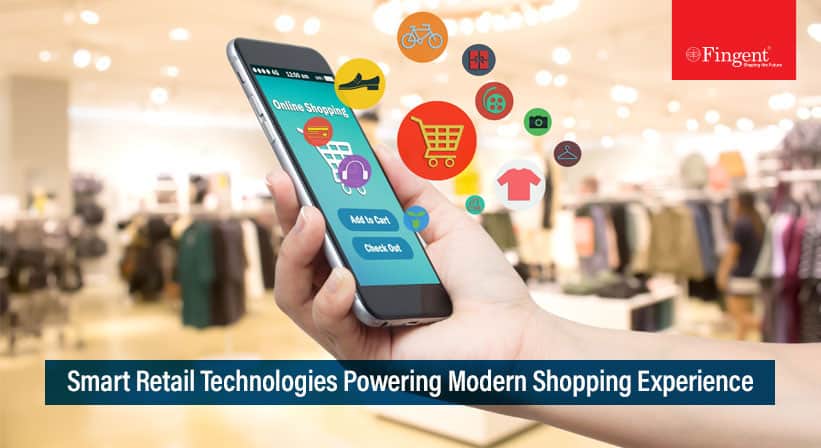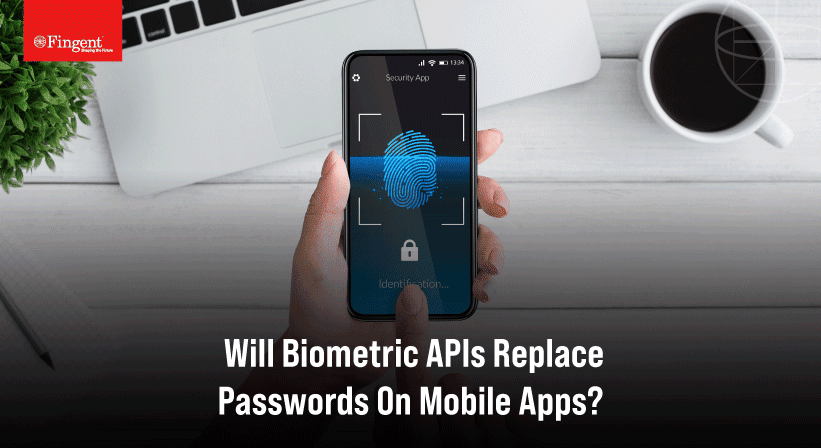Custom Retail Software Solutions: Everything You Need to Know!
How Retail Software Solutions Help You Gain A Competitive Advantage
The retail industry has witnessed a tremendous transformation over the past few years. Innovative retail technologies have made the sector fast-paced and highly competitive. The advent of cloud technology has also disrupted the retail industry from the ground up. These technology changes accelerate the need for advanced and bespoke retail software solutions that can effectively automate most routine store operations.
Why should you adopt custom retail software solutions?
Fingent helps you develop custom retail software solutions that help you:
- Automate everyday retail store operations,
- Switch to e-commerce quickly,
- Enhance inventory management,
- Streamline payments and invoices tracking,
- Improve order fulfillment, and
- Serve your customers better and faster.
Read more: Custom Software Development is the Ideal Way to Build Business Apps in 2021
As several countries continue with lockdown measures, the digital shopping trend and the shift in consumer behavior are here to stay. Retailers are forced to address the rising consumer expectations with limited resources like transport restrictions, shortage of labor, out-of-stock scenarios, and so on. Contactless shopping has found a better place in today’s business landscape, and retailers need to adopt personalized retail software solutions to stay relevant and competent in the market.
A few stats that underscore the significance of custom retail software solutions
The following figures suggest why brick-and-mortar stores must adopt retail software solutions and digital transformation to stay ahead of competitors and attract loyal clients.
- 30% of consumers do not wait for more than two minutes to determine if the product they want to buy is in stock.
- 78% of the customers would not use a retailer again after three late or incomplete deliveries.
- 87% of buyers leave the store if the product they are looking for is unavailable and there is no assistant nearby.
Read more: Digital Transformation in Retail: Why it Matters?
Our custom retail software solutions are perfect for companies of different sizes. We help you build and integrate software tailored to your retail business. We create personalized retail software solutions that are scalable and meet the growing needs of a single shop or even a vast retail chain consisting of several Points of Sale (POS).
Benefits of custom retail software solutions
The most significant features and capabilities of retail software solutions include:
- Managing orders, products, and inventory,
- Handling financial transactions,
- Streamlining the supply chain,
- Helping human resources and marketing campaigns, and
- Managing customer relations.
Here are the benefits of custom retail software solutions.
1. Offers real-time visibility
Retail software solutions allow you to control warehouses and shop floors in online mode and identify if certain products are in or out of stock. Also, it helps you send instant alerts if something is out of order and thus avoid lengthy downtimes.
2. Automates in-store processes
Retail software solutions help automate all major store tasks such as billing, price regulation, inventory auditing, reporting, payroll records, returns processing, and more.
3. Improves customer service
As retail software solutions help automate most store processes, your employees can spend more time engaging with the customers and promoting your new products and latest arrivals. Customer reps will have the historical data in hand while attending a customer service call. This helps them save time, effort, and money, reduce returns and refunds, and direct customers to the optimal solution. Embedded analytics in the software allows your marketing team to send personalized recommendations to your customers based on their shopping history and online behavior.
Read more: A Comprehensive Guide on Developing Custom Accounting Software for Business
Different types of retail software solutions
1. Point of Sales (POS) software
The software for shop management, implemented in brick-and-mortar stores, facilitates seamless transactions between customers and the store on the spot. The POS market is projected to grow at an annual rate of 14% from 2016 to 2024. Fingent helps you develop custom Point of Sales software that enables you to manage sales, inventory, and employees with ease. We build custom POS software for your single store or a retail network. It helps boost your customer engagement and revenue.
2. Inventory management software
We help you develop custom inventory management software for tracking, managing, and organizing product sales, material purchases, and other production processes. Typically, the inventory management software works with wireless tracking, barcodes, and radio-frequency identification to support inventory tracking and control.
3. Payment processing software
Payment processing software is a secure program that connects eCommerce sites via virtual terminals to other payment systems that acknowledge credit cards and other online payment methods. Payment processing software allows users to add their card or bank details and notifies financial institutions that approve or reject payments. We help integrate payment processing software into your retail software solutions.
4. Retail ERP systems
Enterprise resource planning (ERP) systems integrate modules for controlling all stages of business. An ERP system is a perfect software for shop management. ERPs are customizable and support integration with third-party systems. ERPs like Odoo and SAP allow developing specific modules to suit your business needs. For instance, SAP FICO (Finance and Cost controlling module in SAP) and SAP Ariba (sourcing, procurement, and financial supply chain solutions).
Read more: How SAP Solutions Allow Retailers to Stay Competitive in 2021
We are an Official Partner of Odoo as well as a Silver Partner of SAP. We are well placed to offer the best ERP consulting, implementation, and maintenance services for your business across these two platforms.
Read more: How Odoo ERP Enhances Retail Operations Management
5. e-Commerce software
The COVID-19 pandemic has increased the adoption of eCommerce among retailers. That said, retail software platforms are a must today. The software enables online store owners to add and remove products, process payments, fulfill orders, etc. Fingent helps leverage numerous eCommerce development frameworks such as Magento, Odoo, etc., to build B2B and B2C e-commerce software for your business.
Read more: 5 Reasons to Integrate Your E-commerce Application with Odoo ERP
You can deploy retail software solutions either in the cloud or on-premise according to your specific requirements:
- On-premise retail software solutions: An on-premise retail application is installed on your local computers or local servers. However, you may need the expertise of an IT specialist like Fingent to maintain the system and handle updates or fix issues.
- Cloud-based retail software solutions: Cloud-based retail software solutions do not require to be installed on your hardware. If you have a stable and reliable internet connection, you can deploy the retail software as a SaaS solution, which is managed by the providers automatically.
Steps to create custom retail software for your business
1. Choose the right vendor
Selecting the right software provider is crucial as well as challenging. Your choice will determine how positively a future system will impact your business performance.
2. Plan and budget
Create a detailed plan and discuss the key features your system should include. Whether to have an omnichannel solution, what function it should perform, what third-party system it needs to be integrated with, and the software development budget must be considered. You can opt for custom software development. At Fingent, we provide you with out-of-the-box retail software solutions within your budget.
3. Development and implementation
Here are a few best practices to take advantage of custom software development:
- Include an internal team of specialists having the needed expertise and experience to participate in the implementation process.
- Provide your team with adequate training to get started and explain the benefits. Your offshore software development partner can help you with this. At Fingent, we help ease your transition to custom software. We offer training and support and provide post-release maintenance and support to our customers.
- Eliminate inactive accounts and other documents that have not been processed for years to simplify the migration.
4. Testing
The retail software system implementation requires continuous control and testing. Thus, most companies rely on continuous testing to ensure the process will happen simultaneously with the integration.
Additionally, you must be prepared to address several issues. The primary purpose of the final testing is to simulate the lifecycle of your business with go-live processes. Fingent has a dedicated Quality Assurance & Testing team that ensures your application is bug-free, high-performing, and responsive.
5. Maintenance
After successfully implementing the custom retail software system, it needs support and maintenance that must be provided either by your technical experts or the software provider. As said above, Fingent offers post-launch maintenance support and change enhancement services for the custom software we develop.
With extensive experience in retail software development and eCommerce systems, we can become your reliable partner and make your company a front-runner in the retail industry.
If you are looking for custom software for shop management or tailored retail software solutions, please drop us a message.
Stay up to date on what's new

Recommended Posts

17 Jan 2025 B2B
Custom Software Development Services: Unlocking Business Potential for Greater Success
Is your software helping you grow—or holding you back? Off-the-shelf solutions may seem convenient. But they often fail to meet your business's unique needs. This is where custom software development……

05 Jun 2024
AI in Retail: Benefits, Use Cases and More!
What can Artificial Intelligence do for your Retail Business? AI can boost your service and operational capabilities with intelligent data, effective processes, and smart analysis. Imagine having rich insights into……

24 Oct 2023 Retail B2B
Explore Innovative Business Possibilities with Smart Retail Technologies
Our digital era is a whirlwind of change, with technology driving transformation at breakneck speed. It's not just about adopting new gadgets; it's about recognizing technology's influence on consumer interactions.……

21 Jul 2023 B2B
How Biometric APIs Will Replace Passwords on Mobile Apps
Technology successively progresses all around us; from the simplest basic Google searches to the working of aircraft, technology has indented its value in everyday life. Biometric APIs are not a……
Featured Blogs
Stay up to date on
what's new




















































